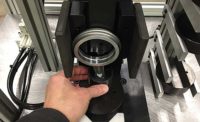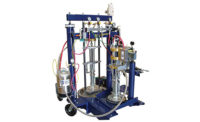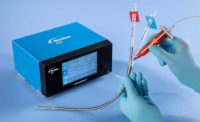Some challenges that manufacturers face are simple, while others are multi-faceted. An example of the latter is continually providing customers with products that are stronger and more durable, yet lighter and smaller to minimize shipping costs.
To meet this challenge, many manufacturers are using structural adhesives instead of mechanical fastening. These adhesives cut manufacturing costs by reducing the number of fasteners needed to create a joint or attach two parts.
An adhesive-bonded joint also produces a smooth, clean surface, thereby reducing the added labor needed for preparation and finishing. Adhesives can even be pre-applied to areas inaccessible to mechanical fastening during the assembly process.
For the last six years, Mack Molding (MM) has enjoyed the benefits of using structural adhesives in its assembly processes. MM specializes in large-part injection molding, painting and contract manufacturing for mechanical automated and electronic assemblies.
In 2015, the company installed three Patriot adhesive-dispensing systems to accurately mix, meter and dispense structural adhesives onto exterior trim parts, such as bumpers manufactured for the transportation industry. MM primarily chose this system because it is made by Magnum Venus Products (MVP), which has a reputation for high-quality equipment.
Managers at MM also like that MVP is a local company with a strong sales staff, as well as service technicians located throughout the United States. This level of support enables MVP to troubleshoot issues over the phone, or even drive to the MM facility and solve a problem onsite.
By using the Patriot system, MM has reduced process time, production parts, rework, downtime and labor costs.
System operators accurately mix industrial-grade, low-flow methacrylate adhesives, and then apply them in low doses. Each system features a displacement-pump-based metering system, which ensures a consistent material ratio of 10-to-1. This, in turn, enables workers to spend more time using the equipment to make parts, rather than continuously monitoring mix ratio.
Double-acting piston pumps provide continuous material flow, allowing the system to reach a volume output of up to 0.45 gallon per minute, with an average rate of 40 cycles per minute. Handheld and automatic gun options are available.
Another Patriot system, the Chop/Wet-Out (CWO), allows manufacturers to apply a resin to products for lamination. MasterCraft has been using the system for the past several years to help assemble a line of large boats.
Vessels of this size require extensive hand lay of fiber reinforcements during composites production and wet-out, which refers to coating individual fiber filaments with resin in a composite sheet. Doing both tasks manually takes nearly 4.5 hours per boat.
To cut process time in half without sacrificing quality, MasterCraft uses the high-volume version of the Patriot CWO. The system’s precision metering ensures consistent porosity and thickness to produce a uniform laminate, while reducing waste caused by overspray and material overuse.
It has a catalyst-to-resin variance of less than 1 percent, and an output capability of seven to 30 pounds per minute.
MVP manufactures and assembles its systems in-house, then delivers and installs them, using only their employees or international certified distributors. For more information on dispensing equipment, call 865-686-5670 or visit www.mvpind.com.








